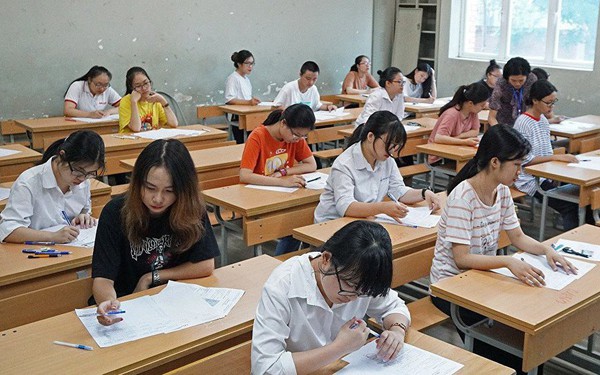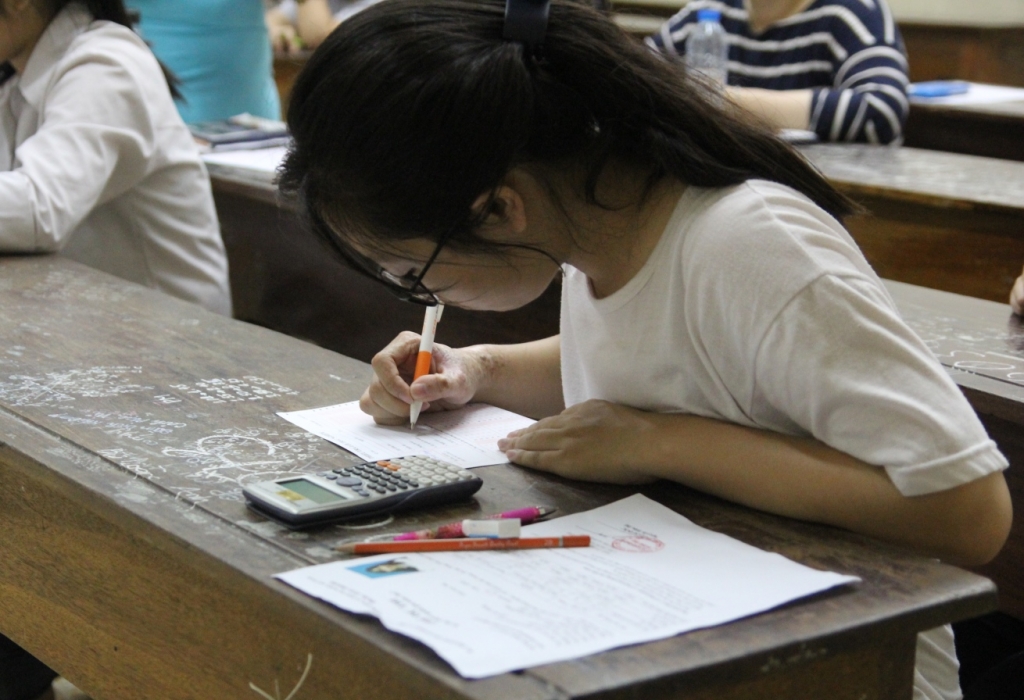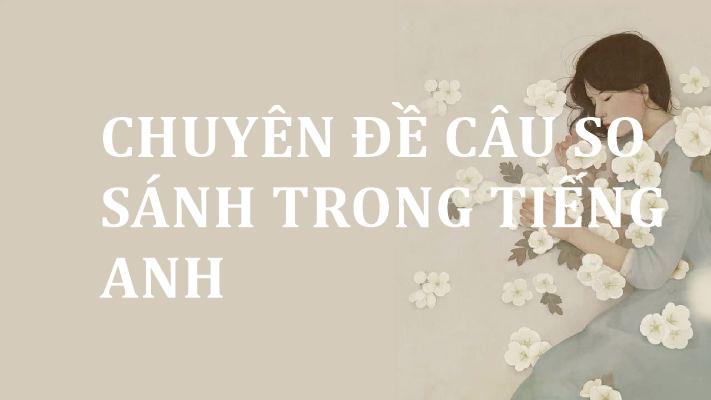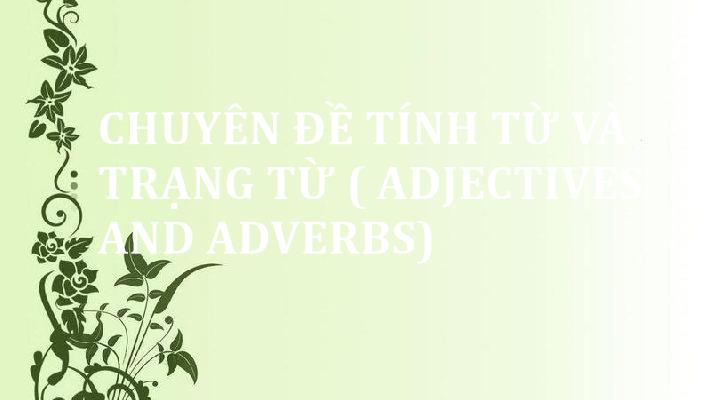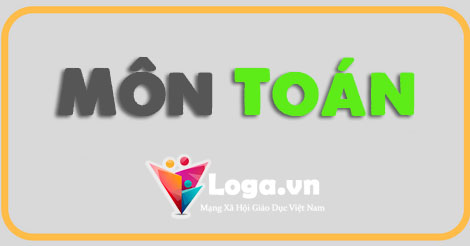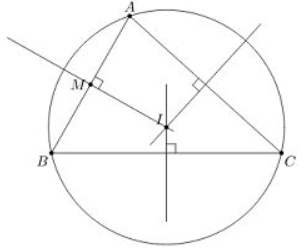Read the following passage and mark the letter A, B, C or D on your answer sheet to indicate the correct answer to
each question.
Ever since humans have inhabited the earth, they have made use of various forms of communication. Generally, this
expression of thoughts and feelings has been in the form of oralspeech. When there is a language barrier, communication is
accomplished through sign language in which motions stand for letters, words, and ideas. Tourists, the deaf, and the mute have
had to resort to this form of expression. Many of these symbols of whole words are very picturesque and exact and can be
used internationally, spelling, however, cannot.
Body language transmits ideas or thoughts by certain actions, either intentionally or unintentionally. A wink can be a way of
flirting or indicating that the party is only joking. A nod signifies approval, while shaking the head indicates a negative reaction.
Other forms of nonlinguistic language can be found in Braille (a system of raised dots read with the fingertips), signalflags,
Morse code, and smoke signals. Road maps and picture signs also guide, warm, and instruct people. While verbalization is most
common form of language, other systems and techniques also express human thoughts and feelings.
Câu1. Which form other than oralspeech would be the most commonly used among blind people?
A Picture signs B Braille
C Signalflags D Body language
Đáp án B
Phương thức nào phổ biến nhất với người khiếm thị
A.kí hiệu bằng tranh
B. chứ nổi
C.cờ hiệu
D. ngôn ngữ cơ thể
Dẫn chứng ở câu đầu tiên đoạn 3: “Other forms of nonlinguistic language can be found in Braille (a system of raised dots read
with the fingertips)”. (Braille: chữ nổi.)
Dịch: Một dạng khác của phi ngôn ngữ được tìm thấy ở chữ nổi( 1 hệ thống bao gồm nhiều dấu chấm được đọc bằng cách sờ
những ngón tay)
Câu2. The word “these” I the first paragraph refers to ________.
A thoughts and feelings B tourists
C the deaf and the mute D sign language motions
Đáp án D
Đối với dạng câu hỏi “They”, “them”, this”, “that”, those”, “it”, etc đề cập đến cái gì ta cần chú ý việc đọc những thông tin phía
trước nó, đôi khi là toàn bộ cả thông tin phía sau để nhận định chính xác nhất cái mà nó đề cập tới
Dẫn chứng: “...When there is a language barrier, communication is accomplished through sign language in which motions
stand for letters, words, and ideas. Tourists, the deaf, and the mute have had to resort to this form of expression. Many of
these symbols of whole words are very picturesque...” (Khi tồn tạirào cản ngôn ngữ, giao tiếp đã hoàn thành tốt nhiệm vụ
thông qua ngôn ngữ cử chỉ mà những chuyển động của nó đại diện cho các chữ cái, các từ và các ý tưởng. Du khách, người
khiếm thính, người khiếm thanh đã phảisử dụng phương thức này để truyền đạt. Nhiều những kí hiệu câu từ của dạng ngôn
ngữ này (ngôn ngữ kí hiệu) rất độc đáo và...)
Câu3. Sign language is said to be very picturesque and exact and can be used internationally EXCEPT for _______.
A spelling B ideas
C whole words D expressions
Đáp án A
Ngôn ngữ kí hiệu được cho rằng chúng rất độc đáo và chính xác, có thể sử dụng 1 cách tự nhiên không cố ý ngoại trừ cho:
A.Đánh vần
B.ý tưởng
C. toàn bộ câu
D.sự bày tỏ
Dẫn chứng ở câu cuối cùng đoạn 1: “spelling, however, can not.”
Câu4 The word “wink” in the second paragraph means most nearly the same as______.
A close one eye briefly
B close two eyes briefly
C shake the head from side to side
D bob the head up and dow
Đáp án A
Wink = close one eye briefly: nháy mắt
Câu5. Which of the following best summarizes this passage?
A Nonlinguistic language is invaluable to foreigners B Although other forms of communication exist,
verbalization is the fastest
C When language is a barrier, people willfind other
forms of communication
D Everybody uses only one form of communication
Đáp án C
A. Ngôn ngữ không phải ngôn ngữ học thì vô giá đối với người nước ngoài.
B. Mặc dù các hình thức truyền thông khác ton tại thì truyền miệng là nhanh nhất.
C. Khi ngôn ngữ là một rào chắn, mọi người sẽ tìm ra các hình thức giao tiếp mới.
D. Mọi người chỉsử dụng một hình thức giao tiếp.
Dẫn chứng:Câu cuối “While verbalization is most common form of language, other systems and techniques also express
human thoughts and feelings.”( trong khi‘nói’ là dạng phổ biến nhất của giáo tiếp thì các hệ thống và công cụ khác cũng diễn
đạt được suy nghĩ và ý tưởng của con người)=>khi không sử dụng phát âm vẫn còn những phương thức khác giúp ta đạt được
hiệu quả giao tiếp
Ngôn ngữ có thể có thể truyền đạt ý tưởng và suy nghĩ 1 thông qua các hành động cụ thể
Thực chất dạng câu hỏi tìm ý chính của bài nên ưu tiên làm sau cùng sau khi đã nắm bắt được kha khá các ý lòng cốt của bài
Câu6. What is the best title for the passage?
A The importance of Sign Language. B Ways of Expressing Feelings.
C The Forms of Communication. D Picturesque Symbols of Communication.
Đáp án C
Đâu là chủ đề thích hợp nhất cho đoạn văn.
A.Tầm quan trọng của ngôn ngữ kí hiệu=>chỉ là ý chính đoạn 1
B.Cách bày tỏ cảm xúc=> đoạn văn không chỉ chỉra cách này tỏ cảm xúc mà còn là idea-ý tưởng và thought-suy nghĩ thông
qua các loại hình khác nhau của giao tiếp
C.Các hình thức khác của giao tiếp
Dẫn chứng là câu đầu tiên của bài: “Ever since humans have inhabited the earth, they have made use of various forms of
communication.”
Writer cũng đã giới thiệu các hình thức khác của giao tiếp theo bố cục từng đoạn cụ thể:(sign language, body language,
nonlinguistic language)
D.Kí hiệu độc đáo của giao tiếp=> Thông tin này không bao quát toàn bài
Câu7. People need to communicate in order to _______.
A keep from reading with their fingertips B be picturesque and exact
C create language barriers D express thoughts and feelings
Đáp án D
Con người cần giao tiếp để-----------
A.duy trì việc đọc bằng những ngón tay
B.độc đáo và chính xác
C.Tạo ra rào cản ngôn ngữ
D.bày tỏ suy nghĩ và cảm xúc
Dẫn chứng ở câu cuối bài văn: “While verbalization is most common form of language, other systems and techniques also
express human thoughts and feelings.”
Câu8. All of the following statements are true EXCEPT ________.
A Ideas and thoughts can be transmitted by body language.
B There are many forms of communication in existence today
C The deaf and mute can use an oralform of communication
D Verbalization is the most common form of communication
đáp án C
Tất cả các câu sau đây đều đúng, ngoại trừ:
A.ý tưởng và suy nghĩ đều có thể được tryền tải bằng ngôn ngữ cơ thể
B.có nhiều hình thức giao tiếp tồn tại ngày nay
C.người khiếm thính và khiếm thị có thể giao tiếp bằng miệng
D.’nói’ là hình thức phổ biến nhất của giao tiếp
Giải thích: +Đáp án A đúng, dẫn chứng ở câu đầu đoạn 2 “ Body language transmits ideas
or thoughts by certain actions”-(ngôn ngữ cơ thể truyền đạt ý tưởng và suy nghĩ thông qua hành động cụ thể)
+Đáp án B đúng, dẫn chứng ở câu đầu tiên “Ever since humans have inhabited the earth, they have made use of various forms
of communication”-( Kể từ khi con người tồi tại trên trái đất, họ đã vận dung đa đạng các hình thức khác nhau để giao tiếp)
+Đáp án D đúng, dẫn chứng câu cuối cùng “...While verbalization is most common form of language,...”-( ‘nói’ là dạng phổ
biến nhất của giáo tiếp) Từ đó loạira đáp án C sai
Choose the word whose underlined part is pronounced differently from that of the others.
Câu1.
A concerned B raised
C Developed D maintained
Đáp án C
Phát âm cuối‘ed’, A, B, D được phát âm là /d/, C là /t/
Cách phát âm “ed”
- Đuôi “ed” được phát âm là /id/: khi động từ có phát âm kết thúc là /t/ hay /d/.
- Đuôi ed được phát âm là /t/: Khi động từ có phát âm kết thúc là: /ch/, /p/, /f/, /s/, /k/, /th/, /ʃ/, /t ʃ/.
- Đuôi ed được phát âm là /d/ trong các trường hợp còn lại.
Lưu ý:raised :/reɪzd/, dễ lẫn với /reɪst/
Câu2.
A hurry B under
C pressure D rush
A-/ˈhʌr.i/ ,
B- /ˈʌn.dər/,
C- /ˈpreʃ.ər/,
D- /rʌʃ/
Mark the letter A, B, C, or D on your answer sheet to indicate the most suitable response to complete each of the following exchanges.
Câu1. She raised her hand high. She wanted to attract her teacher’s attension.
A Because her teacher attracted her, she raised her hand high.
B To attact her teacher’s attension, she raised her hand high.
C Though she raised her hand high, she could not attract her teacher’s attension.
D She had such a high raising of hand that she failed to attract her teacher’s attension.
Đáp án B
Cô ấy giơ tay cao. Cô ấy muốn thu hút sự chú ý của giáo viên
A.Bởi vì giáo viên chú ý cô ấy, cô ấy giơ cao tay lên
B.Để thu hút sự chú ý của giáo viên, cô ấy giơ cao tay lên
C. .Mặc dù giơ cao tay, cô ấy ko thu hút được sự chú ý của giáo viên
D.Cô ấy giơ cao tay quá đến nỗi mà thất bại thu hút sự chú ý của giáo viên
Câu2. My brother isn’t good at English. I’m not either.
A Neither my brother nor I am not good at English. B Neither my brother nor I am good at English.
C Not only my brother but I am good at English as well.
D Both my brother and I are good at English
Đáp án B.Cả tôi và anh trai đều ko tốt tiếng anh
Cấu trúc: Neither...nor...: ko trong 2
Câu B sai vì bản thân Neither...nor... đã thể hiện tính phủ định rồi, ko cần thêm ‘not’
Pick out the word that has the primary stress different from that of the other words.
Câu1.
A Restaurent B Assistance
C Usually D Compliment
Đáp án B
trọng âm rơi âm tiết 2, còn lại là thứ nhất
A./ˈres.trɒnt/
B. /əˈsɪs.təns/
C. /ˈjuː.ʒu.ə.li/
D. /ˈkɒm.plɪ.mənt/
Câu2.
A Suppose
B Problem
C Minute
D Dinner
trọng âm rơi âm tiết thứ 2, còn lại thứ nhất
A. /səˈpəʊz/
B. /ˈprɒb.ləm/
C. /ˈmɪn.ɪt/
D. /ˈdɪn.ər/
Mark the letter A, B, C, or D on your answer sheet to indicate the word(s) OPPOSITE in meaning to the underlined word(s) in each of the following questions.
Câu1. When you see your teacher approaching you, a slight wave to attract his attension is appropiate.
A Coming nearer to B Leaving
C Pointing at D Looking up to
Đáp án B: aproach sbd=come near to sbd: tiến gần, tiếp cận> Dịch: Khi giáo viên đang bưới tới gần bạn, 1 cái vẫy nhẹ để thu
hút sự chú ý là rất thích hợp
Câu2. You should put yourself on the back for having achieved such a high score in the graduation exam.
A Criticize yourself B Wear a backpack
C Praise yourself D Check up your back
Đáp án A
Put yourself on the back (idiom)=praise yourself: tự hào về bản thân > Dịch:Bạn nên tự hào về bản thân vì đã đạt được điểm
cao trong kì thi
Pick out the letter A, B, C, or D to indicate the underlined part that needs corrrections in each of the following questions.
Câu1. The effects of ciagarette smoking has been proven to be extremely harmful.
A The
B ciagarette
C has
D extremely
Đáp án C
Sửa ‘has’=>’have”, động từ trong câu chia theo ‘the effects’(số nhiều)
Dịch: Những ảnh hưởng của việc hút thuốc lá được chứng minh là rất có hại
Câu2. Only after food has been dried or canned it should be stored for future use.
A Only B dried
C it should D use
Đáp án C
Thấy ‘Only after’ đứng đầu là dấu hiệu của đảo ngữ , nên sửa ’It should’=>’should it’
Dịch:Chỉ khi thức ăn được làm khô hoặc đóng hộp, chúng nên được dư trứ cho tương lai
Câu3. Hoa’s parents didn’t allow her going to the cinema with her friends yesterday.
A Hoa’s B didn’t
C going D with
Đáp án C
Cấu trúc: allow sbt to do smt =allow doing smt: cho phép ai làm gì
Sửa ‘going’=>’to go;
Câu1. I haven’t met my grandparents for five years.
A I last met my grandparents five years ago. B I have met my grandparents for five years.
C I often met my grandparents five years ago. D I didn’t meet my grandparents five years ago.
Đáp án A
Tôi chưa gặp ông bà đã được 5 năm rồi
A.lần cuối tôi gặp ông bà là 5 năm trước
B.tôi đã gặp ông bà được 5 năm
C.tôi thỉnh thoảng gặp ông bà vào 5 năm trước
D. Tôi đã ko gặp ông bà 5 năm trước
Câu2. I could not get the job because I did not speak English well.
A I failed to ger the job because of my poor English B Depite my poor English, I was successfull in the job
C I wish I had got the job so that I could speakEnglish well
D I would have spoken English well if I could get the job
I failed to ger the job because of my poor English
Chú ý; Because+ clause=Because+ N/doing
Câu3. “Yes, I solen your purse” The boy said to the young woman.
A The boy denied stealing the young man’s purse. B The young woman thanked the boy for stealing her purse.
C The boy admitted stealing the woman’s purse. D The young woman accused the boy ofstealing her purse.
Đáp án C:Cậu bé thừa nhận đã lấy trộm ví của người phụ nữ
YES-thừa nhận
Ngoàira cầnlưu ý các cấu trúc quan trọng:
• Deny doing st: phủ nhận việc gì
• Thank sb for ding/N: cảm ơn ai đã làm gì
• Admit doing: thú nhận làm gì
• Accuse sb of doing = blame sb for doing: buộc tội ai làm gì
Mark the letter A, B, C, or D to indicate the word(s) CLOSEST in the meaning to the undelined word(s) in each of
the following questions.
Câu1. We have lived there for years and grown fond of the surroundings. That is why we do not want to leave.
A Loved the surroundings B Planted many trees in the surroundings
C Possessed by the surroundings D Hauted by the surrroundings
Grow fond of the suroundings=love the suroundings: trở nên thích nghi, yêu quý môi trường xung quanh
Dịch:Chúng tôi đã sống ở đây nhiều năm và trở nên thân thuộc Đó là lí do chúng tôi ko muốn rời đi
Câu2. I didn’t think his comments were very appropriate at the time.
A Correct B Right
C Exact D Suitable
Đáp án D: appropriate=suitable: thích hợp
Dịch: Tôi ko nghĩ lời bình luận của anh ta là thích hợp ở thời điểm này
Read the passage mark letter A, B, C or D to indicate the correct word for each of the blanks.
The GerneralCerificate of Secondary Education or the GCSE excaminations for short are the standard school-leaver
qualifications taken by virually all UK students in the May and June following their 16th birthday. If you come to a UK _______
school before you _______ the age of 16, you willstudy towards GCSE excaminationin up to 12 subjects. Some subjects are
compulory, including English and matchematics, and you can select _____, such as music, drama, geography and history from a
series of options. GCSEs provide a good all-round education _______ you can build ______ at colleage and eventually at
university.
Câu1.
A dependence B independence
C independent D independently
do vị trí này cần 1 tính từ, independent school: trường tự chủ tài chính
Câu2.
A reach B come
C approach D Go
reach the age of...: đạt đến độ tuổi...
Câu3.
A other B each other
C another D Others
others=other+N (những cái khác, khác với những cái đã đề cập)
A:other không đứng 1 mình, luôn đứng trước N
B: each other dùng khi các vật qua lại có tính tương tác, qua lại
C:another: 1 cái khác (thêm vào, giống với cái đã đề cập)
Câu4.
A what B that
C where D Whose
“That” thay thế cho “a good all-round education”.
Where chỉ nơi chốn, địa điểm. whose chỉsở hữu
Câu5.
A on B at
C in D for
build on: xây dựng lên
Mark the letter A, B, C, or D on your answser sheet to indicate the most suitable response to complete each of the
following exchanges.
Câu1. - Mai: You look great in this new dress, An! - An: _______.
A With pleasure. B I am glad you like it.
C Not at all. D Do not say anything about it.
Đáp án C: dùng như 1 lời cảm ơn
• Đáp án A, B dùng để đáp lại lời cảm ơn.
• Đáp án D :cách nói không lịch sự.
Dich: “Trông bạn thật tuyệt trong bộ váy mới”-“Cảm ơn nhé”
Câu2. Ken and Tom are high – schoolstudents. They are discussing where their study group will meet.
- Ken: “Where is our study group going to meet next weekend?”
– Tom: “_________”.
A Studying in a group is great fun. B Why don’t you look at the atlas?
C We are too busy on weekdays. D The library would be best
Đáp án D
Câu trước hỏi địa điểm “where” và chỉ có đáp án D đáp ứng được thông tin cho câu hỏi.
Dịch: Ken và Tom là học sinh trung học, họ đang thảo luận về nơi học nhóm
-“Nơi nào nhóm mình sẽ gặp nhau tuần sau?”- “ thư viện sẽ là nơi tốt nhất”
Read the following passage and mark the letter A, B, C or D on your answer sheet to indicate the correct answer to
each question.
These days, most people in Britain and the US do not wear very formal clothes. But sometimes it is important to wear the
right thing.
Many British people don't think about clothes very much. They just like to be comfortable. When they go out to enjoy
themselves, they can wear almost anything. At theatres, cinemas and concerts you can put on what you like from elegant suits
and dresses to jeans and sweaters. Anything goes, as long as you look clean and tidy.
But in Britain, as well as in the US, men in offices usually wear suits and ties, and women wear dresses or skirts (not
trousers). Doctors, lawyers and business people wear quite formal clothes. And in some hotels and restaurants men have to
wear ties and women wear smart dresses.
In many years, Americans are more relaxed than British people, but they are more careful with their clothes. At home, or
on holiday, most Americans wear informal or sporty clothes. But when they go out in the evening, they like to look elegant. In
good hotels and restaurants, men have to wear jackets and ties, and women wear pretty clothes and smart hairstyles.
It is difficult to say exactly what people wear informal or formal in Britain and the US, because everyone is different. If you
are not sure what to wear, watch what other people do and then do the same. You'llfeel more relaxed if you don't look too
different from everyone else.
Câu1. Who doesn’t usually wear suits and ties?
A lawyers
B doctors
C drivers
D businessmen
Đáp án C
Dẫn chứng là câu đầu đoạn 4: “Doctors, lawyers and business people wear quite formal clothes.” Từ đó loạira
Câu2. If you visit an American friend at home in the evening, you may find that your friend wears _________.
A pretty clothes
B formal clothes
C dirty clothes
D informal clothes
Đáp án B
Dẫn chứng ở câu thứ 2 đoạn 4” At home, or on holiday, most Americans wear informal or sporty clothes’
Câu3. If you are in a foreign country, the best way the writer suggests to you is to wear
A strange clothes
B as the people there do
C your native clothes
D comfortable clothes
Đáp án B
Dẫn chứng ở gần câu đoạn cuối cùng: “If you are not sure what to wear, watch what other people do and then do the same.”
(nếu bạn ko biết mình nên mặc gì, quan sát những người ở đó và làm theo họ)
Câu4. The word “they” in paragraph 4 refers to ________.
A American peple
B british people
C men
D women
Đáp án A
Chủ ngữ chính của câu đang là Americans vậy nên “they” thay thế cho chủ ngữ đó.
Câu5. The word “elegant” is closest in meaning to _______.
A Decent
B confident
C comfortable
D neat
Đáp án A. elegent=decent: trang nhã, thanh lịch
Confident: tự tin
comfortable: thoải mái
neat: khéo léo, ngăn nắp
Câu6. Many British people wear freely when they__________.
A attend lectures
B attend meetings
C spend their spare time
D work in offices
Đáp án C
Dẫn chứng ở câu thứ 3 đoạn 2” When they go out to enjoy themselves, they can wear almost anything.’’, spare time: thời
gian rỗi, giải trí
Câu7. What do you think the passage is mainly about ?
A Recent dressing habits in Great Britain and the United States.
B The reason why informal clothing is popular in the UK and USA.
C When we should wear in a formal way.
D Where we should wear in a informal way.
Đáp án A
Ý chính của đoạn văn:
A.Thói quen ăn mặc của người Anh và Mĩ
B.Lí do trang phục bình thường phổ biến tại Mĩ và Anh
C.Khi nào chúng ta nên mặc trang phục trang trọng
D. Khi nào chúng ta nên mặc trang phục bình thường
Choose the most suitable words or phrases to fill in the blanks.
Câu1. The man _________ designed the building is my mother.
A Who
B whose
C when
D what
Đáp án A
Who thay thế cho ‘The man’, và đằng sau ‘who’ luôn là 1 động từ
Whose chỉsở hữu, when chỉ thời gian
Câu2. I ________ for this company for more than 30 years, and I intend to stay here untilI retire next year.
A am working
B am going to work
C have
D been working
Đáp án D
Thì Hiện tại hoàn thành tiếp diễn ( have/has been doing) diễn tả hành động đã xảy ra trong quá khứ và còn tiếp diễn đến hiện
tại và tương lai
Dịch: Tôi làm việc cho công ti này nay đã hơn 30 năm, và tôi có ý định ở lại tiếp cho đến 1 năm sau thì nghỉ hưu
Câu3. I fell in ______ love with him because of his kind nature.
A A
B an
C the
D 0
Đáp án D. fell in love with sbd: có tình cảm với ai
Dịch : tôi có cảm tình với anh ta bởi bản tính nhân hậu của anh
Câu4. She accepted that she had acted _______ and mistakenly, which broke up her marriage.
A Romantically
B unwisely
C wisely
D attractively
Đáp án B.unwisely: ngu xuẩn
Dịch :Cô ấy thừa nhận rằng mình đã hành động ngu xuẩn và sai lầm, điều làm hôn nhân tan vỡ
Romantically: : 1 cách lãng mạn
Wisely: : 1 cách đúng đắn, lí trí
Attractively : 1 cách ngu ngốc
Câu5. All of us ______ obey the traffic laws.
A Must
B can
C may
D need
Đáp án A.
Tất cả chúng ta phải tuân tủ theo luật giao thông
Câu này có thể bị phân vân giữa ‘need’ và ‘must’, nhưng có’law’-luật pháp nên phải dùng từ mạnh nhất ‘must’ mang tính bắt
buộc
Câu6. I recognized my grandma as soon as she ____ the plane through we had not seen each other for more than 10 years.
A Got up
B got off
C got in
D got over
Đáp án C. get off: xuống tàu, máy bay, etc
Dịch: tôi nhận ra ngay bà ngoại ngay khi bà bước xuống máy bay mẵ dù 10 năm chúng tôi chưa gặp nhau
Get up: thức dậy
get in: lên tàu, máy bay, etc
get over: vượt qua (cú sốc)
Câu7. People believed that what they do on the first day of year will _____ their luck during the whole year.
A Contrl
B influence
C exchange
D result
Đáp án B.ảnh hưởng
Dịch: Mọi người tin rằng điều mà họ làm ngày đầu tiên trong năm sẽ ảnh hưởng đến vận may cả năm
Câu8. On my birthday, my father gave me a ________.
A New blue German car
B Blue German new car
C new German blue car
D German new blue car
Đáp án A: New(age) blue(color) German(origin) car
Cần lưu ý tới thứ tự tính từ trong cụm danh từ
Opinion - tính từ chỉ quan điểm, sự đánh giá. (beautiful, wonderful, terrible...)
Size - tính từ chỉ kích cỡ. (big, small, long, short, tall...
Age - tính từ chỉ độ tuổi. (old, young, old, new...)
Shape - tính từ chỉ hình dạng (circular, square, round, rectangle... )
Color - tính từ chỉ màu sắc. (orange, yellow, light blue...)
Origin – tính từ chỉ nguồn gốc, xuất xứ. (Japanese, American, Vietnamese...)
Material – tính từ chỉ chất liệu (stone, plastic, leather, steel, silk...)
Purpose – tính từ chỉ mục đích, tác dụng
OSASCOMP: Ông Sáu Ăn Súp Cơm Ông Mập Phì
Câu9. The boy waved his hands to his mother, who was standing at the school gate to ______ her attention.
A Attract
B pull
C follow
D tempt
Đáp án A.
Attract one’attention: Thu hút sự chú ý từ ai
Dịch: cậu bé vẫy tay với mẹ, người mà đang đứng ở cổng trường để thu hút sự chú ý từ mẹ
Câu10. In some cases, Mary is thought not to be ________ her sister.
A As much intelligent than
B So intelligent than
C intelligent more than
D as intelligent as
Đáp án D.
cấu trúc so sánh bằng: ...as adj as. ...
Dịch:Trong và trường hợp, Mary được cho rằng ko thông minh bằng chị gái A, B, C sai cấu trúc
Câu11. Most of us would maintain that physical _______ does not play a major part in how we react to the people we
meet.
A Attract
B attractive
C attractiveness
D attractivel
Đáp án C
Vị trí này cần 1 danh từ, ‘physical attractiveness’: ngoại hình hấp dẫn
Dịch :Moi người trong chúng ta duy trì thể hình hấp dẫn, điều đó không quan trọng và liên quan tới cách ta phản ứng với những
người mà ta gặp
Câu12. The mother asked her son _____ the day before.
A Where he has been
B Where he had been
C where has he been
D where had he been
Đáp án B
Câu gián tiếp thì quá khứ |(DH: the day before), động từ chia về thì QKHT( had PII)
Câu hỏi cần chuyển về dạng khẳng định khi đưa sang câu gián tiếp
Dịch: Mẹ hỏi con trairằng cậu đã ở đâu hôm quá

